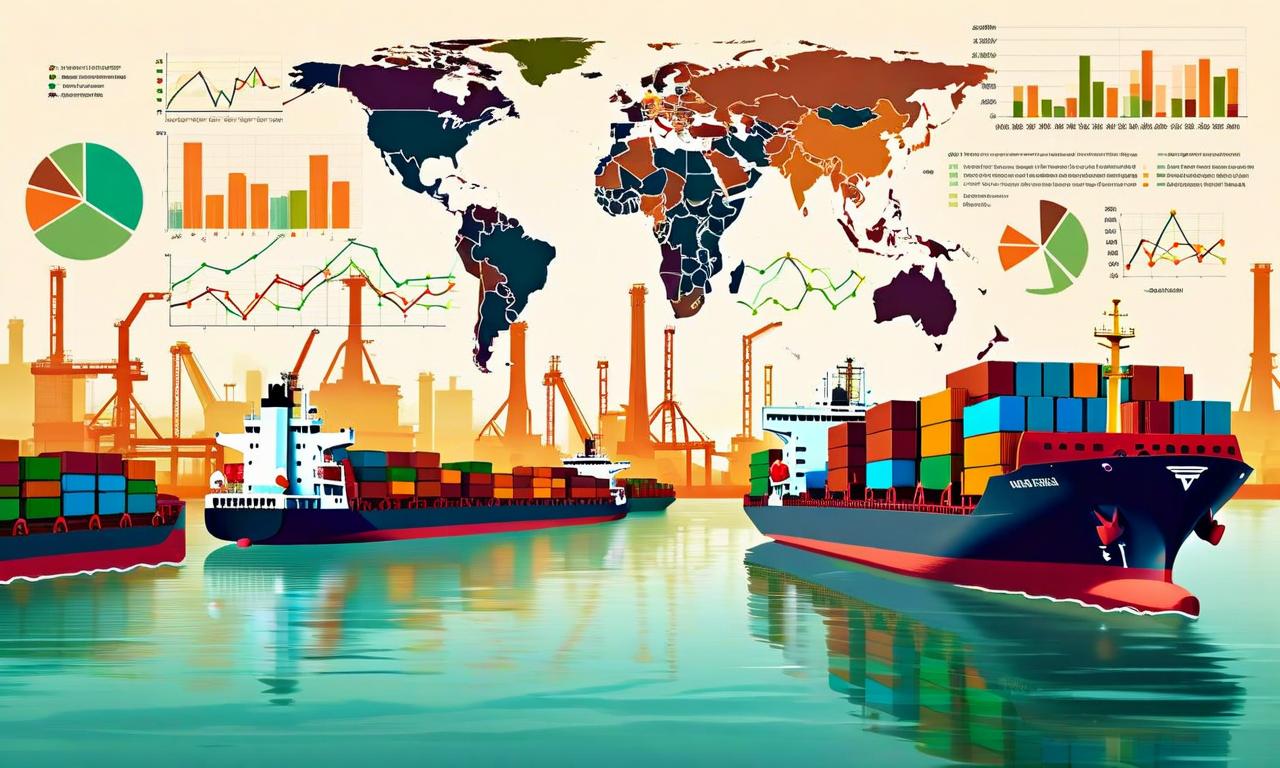India's July Economic Report: U.S. Tariffs Show Limited Immediate Impact, Long-term Concerns Loom
India's July economic report indicates that U.S. tariffs have had limited immediate effects on the country's exports. However, the report warns of potential long-term challenges, including supply chain disruptions, market shifts, currency fluctuations, and the risk of a global economic slowdown. The findings emphasize the need for vigilant economic planning, adaptive trade policies, and strategies such as export market diversification and enhancement of domestic manufacturing capabilities.

*this image is generated using AI for illustrative purposes only.
India's recently released July economic report offers a nuanced perspective on the impact of U.S. tariffs on the country's export sector. The report highlights a complex economic landscape, revealing both immediate resilience and potential future challenges for India's trade dynamics.
Limited Short-term Effects
According to the July economic report, the immediate effects of U.S. tariffs on India's exports have been relatively limited. This suggests that in the short term, India's export sector has demonstrated resilience in the face of changing global trade policies. The ability to withstand immediate shocks could be attributed to factors such as diverse export markets, adaptive trade strategies, or the nature of goods being exported.
Potential Long-term Challenges
Despite the initial limited impact, the report raises concerns about potential secondary and tertiary effects that could pose broader economic challenges for India in the future. These indirect consequences of U.S. tariffs might manifest in several ways:
- Supply Chain Disruptions: Changes in global trade patterns could affect India's position in international supply chains.
- Market Shifts: Alterations in demand from countries affected by U.S. tariffs might indirectly impact India's export markets.
- Currency Fluctuations: Trade tensions could lead to currency volatility, affecting India's export competitiveness.
- Global Economic Slowdown: If trade tensions contribute to a broader global economic slowdown, India's export sector could face headwinds.
Implications for Economic Policy
The findings of the July economic report underscore the need for vigilant economic planning and adaptive trade policies. While the immediate resilience is encouraging, policymakers and businesses may need to prepare for potential longer-term impacts.
India's ability to navigate these complex trade dynamics will likely depend on factors such as:
- Diversification of export markets
- Enhancement of domestic manufacturing capabilities
- Strategic trade negotiations
- Investment in sectors with competitive advantages
As global trade tensions continue to evolve, the report suggests that ongoing monitoring and agile policy responses will be crucial for maintaining India's economic growth and export performance in the face of changing international trade landscapes.
The July economic report serves as a reminder of the interconnected nature of global economies and the importance of comprehensive economic analysis in an era of shifting trade policies.
























